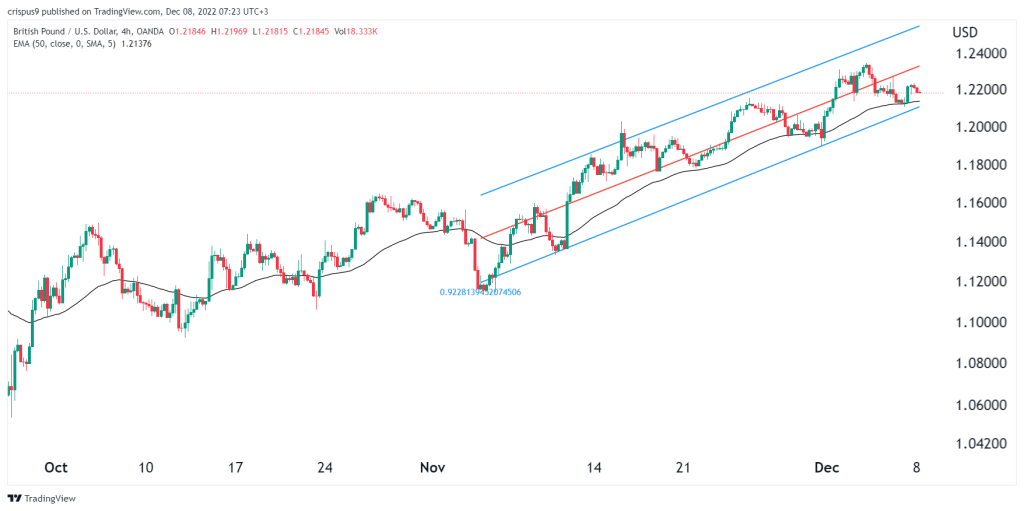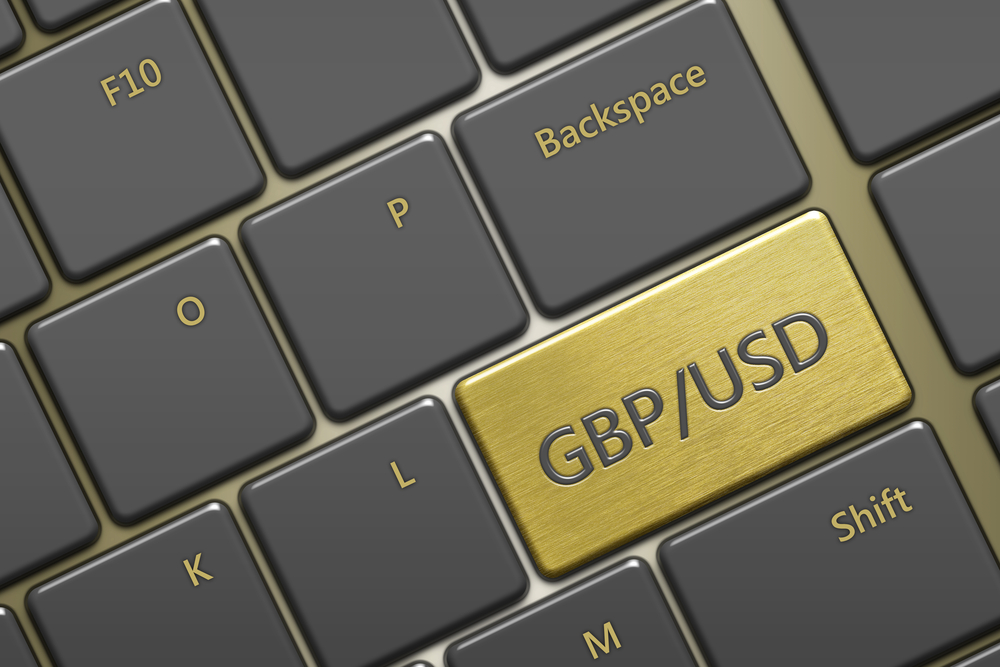- The great pound sterling comeback has fizzled in the past few days. After recovering by over 10%, the GBP/USD is recovering
The great pound sterling comeback has fizzled in the past few days. After recovering by over 10%, the GBP/USD price has moved sideways this week. It was trading at 1.2195 on Thursday, which was a few points below this month’s high of 1.2345. So, what next for the British pound?
BoE and Fed decisions
The GBP to USD exchange rate has moved sideways this week amid rising recession risks globally. On Friday, data published by the United States showed that the economy added 283k jobs in November while the unemployment rate remained at 3.7%. Wages grew at a remarkable pace of 5.2%.
A closer look at the bond market in the UK and the US shows that the yield curves have inverted. In the US, it has inverted to about -83, the lowest level in decades. In the UK, the curve has continued falling in the past few weeks. On Wednesday, data by Halifax showed that UK house prices continued slipping in November amid rising interest rates.
The next main catalyst for the GBP/USD price will be next week’s Fed and BoE decisions. Faced with rising recession risks, these banks will likely continue up-shifting but at a slower pace. Economists expect that the Fed will hike rates by 50 basis points, bringing the year-to-date increases to 450 basis points. In Europe, the BoE will also hike by 0.50%.
The BoE is at a more difficult place than the Federal Reserve. In the UK, inflation remains in the double-digit phase while economic growth is falling. This means that the UK economy is going through a period of stagflation. As such, more rate hikes could make the situation worse. This explains why some are calling for the ouster of Andrew Bailey, BoE’s chief.
The US, on the other hand, is at a better place since the economy is recovering while inflation has already peaked.
GBP/USD forecast
The 4H chart shows that the pound sterling has been in a strong bullish trend in the past few weeks. In this period, it has formed a near-perfect ascending regression channel that is shown in blue. It is now between the lower and the middle lines of this regression channel. The pair is also being supported by the 50-day moving average.
Therefore, the upward trend will likely continue unless the pair breaks below the lower side of the channel. If this happens, the pair will likely continue rising as buyers target the upper side of the channel at 1.2400. A drop below the lower side of the channel will invalidate the bullish view.





